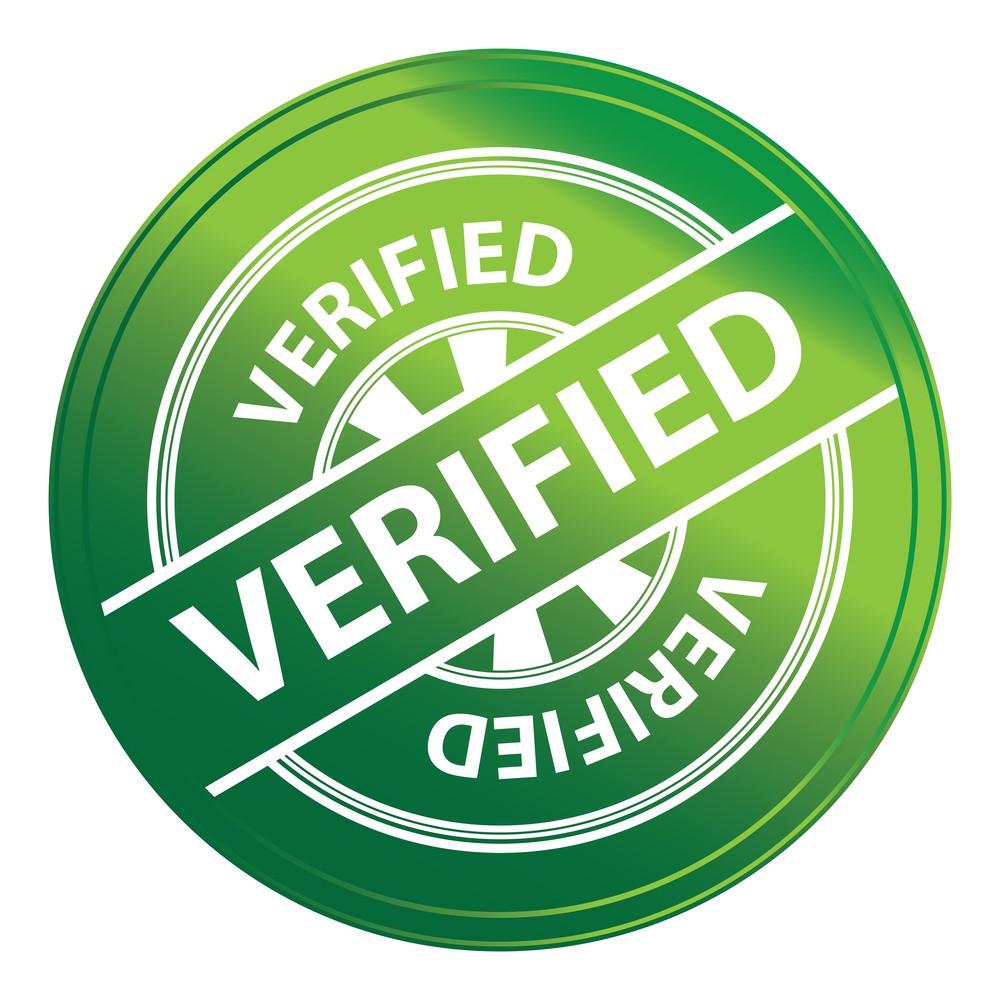Rule 144 Legal Opinion Checklist l Securities Lawyer 101
Securities Lawyer 101 Blog
The Securities Act of 1933, as amended (the “Securities Act”) requires the sale of a security to be registered under the Securities Act, unless the security or transaction qualifies for an exemption from registration. Rule 144 of the Securities Act provides a safe harbor that permits holders of “restricted securities” to resell their securities in the public market if specific conditions are met. In order to remove the legend from certificates representing shares being resold in reliance upon Rule 144, an opinion from an SEC attorney is required.
Rule 144 also applies to the public sale of any securities held by directors, executive officers and other “affiliates” of the issuer. Read More
Whistleblowers Gone Wild

Nearly everyone believes the Securities and Exchange Commission’s Whistleblower Program under the Dodd Frank Act is a good idea. By the agency’s account, a considerable number of fraudulent schemes have been exposed, and devious perpetrators brought to justice thanks to tips sent in by people who believe they possess information that could help stop crime. Unfortunately, not all tips received are reliable, and not all would-be whistleblowers are credible. The SEC recently disclosed a long-running problem it had with an individual who filed a very large number of complaints—and tried to claim monetary awards for—a wide variety of cases brought against individuals and entities for which he provided no useful information.
Frank Speight and International Stock Transfer Charged
On July 24, 2014, the Securities and Exchange Commission (the”SEC”) and Department of Justice announced charges against Frank-Speight (Cecil Franklin Speight) and his Florida-based transfer agent with defrauding investors by using aggressive boiler room tactics to peddle worthless securities with promises of high returns or discounted prices. Read More
Carolyn Winsor Apprehended by U.S. Authorities
On June 27, 2014, Caroline Winsor, also known as Caroline Meyers and Caroline Danforth was apprehended and is in custody of the U.S. authorities. Winsor was indicted with conspiracy, wire fraud, and securities fraud. In April of 2013, more than a year before her arrest, Winsor was the subject of a detailed forensic report by www.promotionstocksecrets.com, which contained allegations mirroring the government’s charges against Winsor.
What is a Confidential Treatment Request?
An issuer filing a registration statement with the Securities and Exchange Commission (the “SEC”) that desires to keep certain information confidential and out of the public domain may do so under limited circumstances by filing an SEC request for confidential treatment. Generally, the SEC will not grant a confidential treatment request with respect to information that is specifically required to be disclosed under the securities laws or information that is otherwise material to investors.
The SEC’s Oversight of the Registration Statement Process
The Securities and Exchange Commission (“SEC”) is the key regulator of going public transactions, securities offerings and securities professionals. During the going public and registration statement process the SEC provides oversight of various professionals involved in the process. These include Transfer Agents, Sponsoring Market Makers, Securities Attorneys, Edgar Filers and Accountants. Read More
Company Website Requirements for Periodic Reports

It has become almost routine for publicly traded companies to use their websites to provide information to investors. In going public transactions, the issuer’s website can be used to keep shareholders informed about the different stages of the going public process and it can become a source of the issuer’s SEC periodic reports. Companies become subject to the SEC’s periodic reporting requirements a number of ways including by filing a registration under the Securities Act of 1933, as amended or pursuant to the Securities Exchange Act of 1934. Company websites provide a painless method for issuers to provide transparency to both shareholders and investors while raising capital during the going public process. Read More
Pending JOBS Act Proposals – Securities Lawyer 101
The Jumpstart Our Business Startups Act (or JOBS Act) (the “JOBS Act”), enacted in 2012, is intended, among other things, to reduce barriers to capital formation, particularly for smaller companies. Read More
SEC Charges Investor Relations Provider, Kevin McGrath
SEC Charges Brokers and Codesmart Executive in Pump-And-Dump Scheme
On July 17, 2014, the SEC charged individuals who pocketed millions of dollars running an elaborate pump-and-dump scheme involving shares of a medical education company in Pennsylvania and two other microcap stocks.
The SEC alleges that the stock market manipulation ring included two self-described bankers, a pair of dishonest brokers, and a corrupt company executive who issued misleading press releases. The SEC suspended trading in one of the microcap companies before they could illegally profit further. Read More
SEC Charges Christopher Plummer & Cex Cowsert in Vaccine Development Scam
On July 18, 2014, the Securities and Exchange Commission (“SEC”) charged what it described as a serial con artist and a penny stock company CEO with misleading investors in a supposed vaccine development company by issuing false press releases portraying it as a successful venture when it was in fact a failing enterprise.
The SEC alleges that Christopher Plummer teamed up with the CEO of CytoGenix, Lex Cowsert, to defraud investors with extravagant claims about the microcap company’s revenue and other benefits. The defendant claimed to have a “shared revenue agreement” with Franklin Power & Light, an electricity provider supposedly operated by Plummer. According to the SEC charges, Plummer’s entity was a complete sham, CytoGenix had actually lost all of its vaccine patents and other intellectual property in a lawsuit. The SEC’s allegations include that Plummer and Cowsert stole proceeds of CytoGenix stock offerings that they told investors would be used for energy production projects and other corporate purposes. Read More
What is Regulation D? Going Public Lawyers
Under the Securities Act of 1933, any offer to sell securities must either be registered with the SEC or meet an exemption. Regulation D of the Securities Act contains three rules providing exemptions from the registration requirements, allowing some companies to offer and sell their securities without having to register the securities with the SEC. For more information about these exemptions, read our publications on Rules 504, 505, and 506 of Regulation D.
While companies using a Reg D (17 CFR § 230.501 et seq.) exemption do not have to register their securities and usually do not have to file reports with the SEC, they must file what’s known as a “Form D” after they first sell their securities. Form D is a brief notice that includes the names and addresses of the company’s executive officers and stock promoters, but contains little other information about the company. Read More
Can I Use Rule 504 to Issue Free Trading Stock? Securities Lawyer 101
Rule 504 of Regulation D provides an exemption from the registration requirements of the federal securities laws for some companies when they offer and sell up to $5,000,000 of their securities in any 12-month period. A company can use the Rule 504 exemption so long as it is not a blank check company and is not obligated to file reports with the Securities and Exchange Commission under the Securities Exchange Act of 1934. Also, the exemption generally does not allow companies to solicit or advertise their securities to the public, and purchasers receive “restricted” securities, meaning that they may not sell the securities without registration or an applicable exemption. Read More
What Are SEC Related Party Disclosures?
The Securities and Exchange Commission’s (the “SEC”) disclosure requirements for transactions with certain Related Persons are designed to provide shareholders with a clear and complete picture of key financial relationships impacting public companies. Items 404(a) of Regulations S-K and S-B set out the SEC’s disclosure rules for these Related Person transactions. This blog post addresses the requirements of Item 404(a) for Related Party Disclosures. Read More
What is a Stock Promoter? Securities Lawyer 101
Securities Lawyer 101 Blog
The securities laws contain specific rules and regulations that apply to issuers who use the services of promoters.
These include disclosure obligations under the Securities Act of 1933, (“Securities Act”) and the Securities Exchange Act of 1934, (“Exchange Act”). Read More
Disclosure Controls and Procedures & Internal Control Over Financial Reporting
Under the Sarbanes-Oxley Act, a company’s Chief Executive Officer and Chief Financial Officer must provide certifications in Form 10-K and Form 10-Q. The certifications must state that they have reviewed the report, believe that it does not contain any material misstatements or omissions and that the included financial statements and other financial information fairly represent the issuer’s financial condition. Read More
SEC Charges Lawbreakers Who Secretly Ran Microcap Company
Posted by Securities Lawyer 101 Blog
On July 16, 2014, the Securities and Exchange Commission announced SEC charges against James E. Cohen and Joseph Corazzi who secretly controlled Natural Blue Resources including the operational and management decisions of the company while calling themselves outside “consultants.” Read More
The SEC Provides Guidance For Accredited Investor Verification
On July 3, 2014, the Securities and Exchange Commission (“SEC”) six compliance and disclosure interpretations (“CD&I”) providing guidance as to the accredited investor verification in Rule 506(c) offerings. On September 23, 2013, the Rule 506(c) became effective. The rule allows companies to advertise their private placements so long as sales are only made to purchasers who qualify as accredited investors. Under the rule, issuer who conduct 506(c) offerings are required to take “reasonable steps” to verify that all purchasers in their offerings are accredited investors. Offers can be made to all investors but for a sale, the issuer must have a reasonable belief that purchasers are accredited investors at the time of sale.
SEC Charges Golfers in Scam By: Brenda Hamilton Lawyer

On July 11, 2014, the Securities and Exchange Commission announced charges against a group of golfing friends, who made more than $554,000 of illegal profits from trading on inside information about Massachusetts-based American Superconductor Corporation. Read More
Five Charged with Attempted Manipulation of Amogear
On July 14, 2014, the U.S. Attorney for the District of Massachusetts, and the Federal Bureau of Investigation today announced charges against five individuals whose attempt to manipulate shares of Boston-based Amogear Inc. was caught by an FBI undercover operation. According to the SEC and criminal cases filed in federal court in Boston, the defendants knew that Amogear was a shell company without any real operations, but schemed to boost its price and profit by selling their own shares.
What the parties didn’t know was that the FBI controlled Amogear and used it to obtain evidence of attempted stock manipulation. To protect investors, the SEC suspended trading in Amogear’s securities on February 10, as the attempted stock manipulation was underway. Read More
SEC Obtains Judgment Against John Babikian
On July 8, 2012, the Securities and Exchange Commission announced (“SEC”) announced a final judgment against defendant John Babikian in the Commission action styled, SEC v. John Babikian, Civil Action No. 14-CV-1740 (S.D.N.Y.). The Court entered the final judgment, to which Babikian consented without admitting or denying the allegations. The final judgment orders Babikian to pay a total of $3,730,000, comprised of $1,915,670 in disgorgement, together with prejudgment interest in the amount of $128,073, and a civil penalty in the amount of $1,686,257.
The final judgment also imposes a bar from participating in any offering of penny stock and enjoins John Babikian from recommending, directly or indirectly, the purchase of any U.S. publicly traded or quoted stock without simultaneously disclosing any plans or intentions to sell such stock within 14 days of the recommendation. Finally, the final judgment permanently enjoins Babikian from violating Section 17(a) of the Securities Act of 1933 (15 U.S.C. § 77q(a)), Section 10(b) of the Securities Exchange Act of 1934 (15 U.S.C. § 78j(b)) and Rule 10b-5 promulgated thereunder (17 C.F.R. § 240.10b-5). Read More
Securities Lawyers Gone Wild – Charles Blackwelder Indicted

Charles Blackwelder, an Indiana lawyer and his daughter have been charged in connection with a $23 million Ponzi scheme that was allegedly targeting senior citizens. Blackwelder and his daughter, Cara Grumme, were charged with twenty felonies, including nine counts of securities fraud and four counts of securities fraud on a victim over the age of 60. Each of the felonies carries a minimum sentence of four years. The most amazing aspect of the scheme is that it continued for more than a decade and cost investors more than $23 million. Read More
SEC Settles Action Against Noble Executives Mark A. Jackson and James J. Ruehle
On July 7, 2014, the Securities and Exchange Commission (SEC) announced that former Noble CEO Mark A Jackson and former Director and Division Manager of Noble’s Nigeria subsidiary James J. Ruehlen, have agreed to settle the SEC’s pending civil actions against them. The case had been set for a jury trial. Read More






























